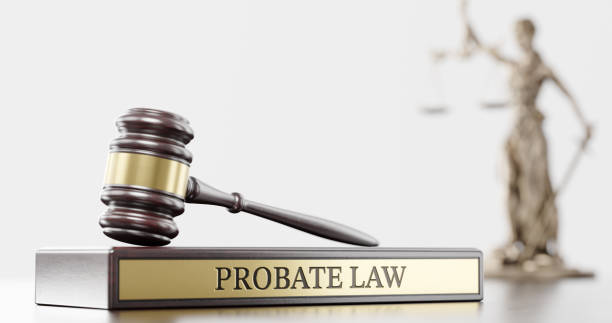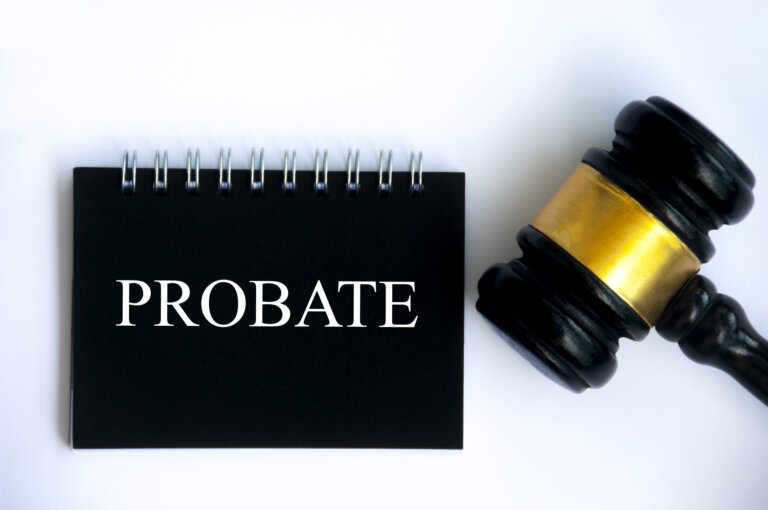Real estate transactions, particularly those involving probate, are inherently influenced by market conditions. In Texas, where probate law intersects with a dynamic real estate market, understanding how shifts in the economy, housing demand, and regional trends impact probate real estate sales is crucial for both executors and beneficiaries. When someone passes away, their estate often includes real property that must be sold or distributed, and the timing and strategy of such sales are greatly affected by broader market conditions. This article explores the factors shaping the Texas real estate market and how they influence the sale of probate properties. We’ll also delve into strategies that can help maximize the value of probate real estate sales, regardless of market fluctuations.
What is Probate Real Estate?
Probate real estate refers to properties that are part of a deceased person’s estate. When someone dies, their assets, including real estate, are often subject to the probate process, which legally transfers ownership to heirs or beneficiaries. However, if the will dictates or financial obligations necessitate selling the property, the executor must navigate not only the legal process but also the complexities of the real estate market.

In Texas, probate proceedings must be followed carefully, and the sale of any property during this process is bound by specific regulations. Executors are required to manage, appraise, and sell the property in a way that is equitable for all beneficiaries while adhering to court approval where necessary. The market conditions at the time of sale can greatly impact the estate’s financial outcome.
Understanding the Texas Real Estate Market
The Texas real estate market is diverse, ranging from sprawling rural landscapes to bustling metropolitan areas like Austin, Houston, and Dallas. Various factors influence the market’s conditions, including economic growth, housing demand, interest rates, and population shifts. A booming economy and high demand for homes often lead to higher property values, whereas a sluggish economy or high-interest rates can result in decreased home prices and longer sales times.
In recent years, Texas has experienced significant growth in its real estate sector, driven by a surge in population as people relocate from other states, lured by Texas’ business-friendly environment, lower cost of living, and job opportunities. However, market fluctuations—such as rising interest rates or a downturn in the national economy—can quickly change the landscape, impacting everything from buyer demand to home values.
Key Market Conditions That Affect Probate Real Estate Sales
Several market factors can significantly impact the sale of real estate during the probate process. These include:
1. Buyer Demand
When demand for homes is high, probate properties typically sell more quickly and at higher prices. This is particularly true in competitive markets like Austin and Houston, where housing shortages have driven up prices in recent years. For an executor handling a probate sale, a high-demand market means less time spent waiting for offers and potentially higher proceeds for the estate’s beneficiaries.
Conversely, during a buyer’s market—where supply exceeds demand—properties may linger on the market longer, and buyers may submit lower offers. For probate real estate, this can mean prolonged sales timelines, increased holding costs (such as maintenance and property taxes), and a reduced final sale price.

2. Interest Rates
Interest rates have a direct influence on the housing market. Lower interest rates generally increase homebuying activity as buyers can afford larger loans, resulting in higher demand for properties. For an executor selling probate real estate, low interest rates can lead to a faster sale at a higher price.
However, rising interest rates can cool buyer enthusiasm, leading to fewer offers and a more challenging sale environment. In such cases, executors might have to consider price reductions or be prepared for longer holding periods as buyers reassess their purchasing power.
3. Economic Conditions
The overall health of the economy plays a critical role in real estate sales. During times of economic expansion, employment rates are higher, wages increase, and consumer confidence rises. These factors create a favorable environment for selling real estate, including probate properties.
During an economic downturn or recession, however, real estate markets tend to slow down. Buyers may delay purchasing homes due to financial uncertainty, causing property values to drop and making it more challenging to sell probate real estate quickly or at a favorable price. Executors must be prepared to adjust pricing strategies and sales expectations based on prevailing economic conditions.
4. Regional Housing Trends
Texas is a large state with varying regional real estate trends. While cities like Austin and Dallas have seen significant housing demand and price growth, rural areas or smaller towns may not experience the same level of market activity. Executors selling probate real estate in less-populated areas may face different challenges than those selling in urban markets.
For example, rural properties may attract fewer buyers, requiring longer marketing periods and potentially lower sale prices. Conversely, properties in high-demand areas like central Austin may sell quickly and at a premium, regardless of broader market conditions.
Probate-Specific Challenges in a Changing Market
While market conditions affect all real estate transactions, probate real estate sales often face unique challenges that can exacerbate the impact of these market shifts.
1. Court Involvement
Probate property sales often require court approval, which can slow the process down, especially if there are disputes among beneficiaries or if the property needs to go through a formal appraisal. In a volatile market, time is of the essence, and delays can mean the difference between selling in a seller’s market or being forced to hold the property until conditions improve.
2. Emotional and Family Dynamics
In many probate situations, the sale of a family home or estate property is not just a financial transaction—it’s also an emotional one. Family members may have sentimental attachments to the property, or they may disagree on the sale price or timing. These dynamics can slow down decision-making, causing delays that affect the sale’s timing concerning the market.
3. Property Condition
Many probate properties have not been updated or well-maintained before the decedent’s passing. In a hot market, buyers may be willing to overlook cosmetic issues or take on renovations. In a slower market, however, buyers may be more discerning and expect properties to be in move-in condition, putting additional pressure on the estate to either invest in repairs or accept lower offers.
Maximizing Probate Real Estate Sales in Different Market Conditions
Regardless of the market, there are strategies executors can implement to maximize the value of probate real estate sales.
1. Understand the Market
Executors should work with a knowledgeable real estate agent who understands the local Texas market. This includes assessing current demand, pricing trends, and buyer preferences in the region where the property is located. Agents with probate experience can also guide executors through the legal requirements specific to these sales.
2. Timing is Key
While executors often want to sell probate properties quickly to settle the estate, understanding the market cycle is critical. If the market is particularly slow, it might be worth waiting to list the property until conditions improve. On the other hand, in a hot market, acting quickly can ensure a faster sale at a higher price.
3. Consider Renovations

In markets where buyers expect move-in-ready homes, it may be worth considering light renovations to increase the property’s appeal. Fresh paint, updated fixtures, and minor repairs can make a significant difference in how quickly a property sells and the final price. Executors must balance the costs of these updates with the potential return on investment.
4. Price Strategically
Pricing probate real estate correctly is crucial, especially in fluctuating markets. Overpricing can lead to prolonged market time and potential price reductions, while underpricing leaves money on the table for beneficiaries. Executors should rely on comparative market analyses provided by real estate agents to set a competitive, fair price.
5. Marketing the Property
Probate properties often have a unique story that can be a marketing asset. Highlighting the property’s history or unique features can attract buyers looking for character homes or investment opportunities. In a slow market, a well-executed marketing campaign, including online listings, open houses, and staging, can make the property stand out.
Conclusion: Navigating Market Conditions in Probate Real Estate Sales
The sale of probate real estate in Texas is a complex process that can be greatly affected by market conditions. Whether the market is booming or in a downturn, understanding the factors at play can help executors make informed decisions that benefit the estate and its beneficiaries. By working with experienced professionals, considering the property’s condition, and timing the sale strategically, executors can navigate even the most challenging market conditions and maximize the value of the probate property.








